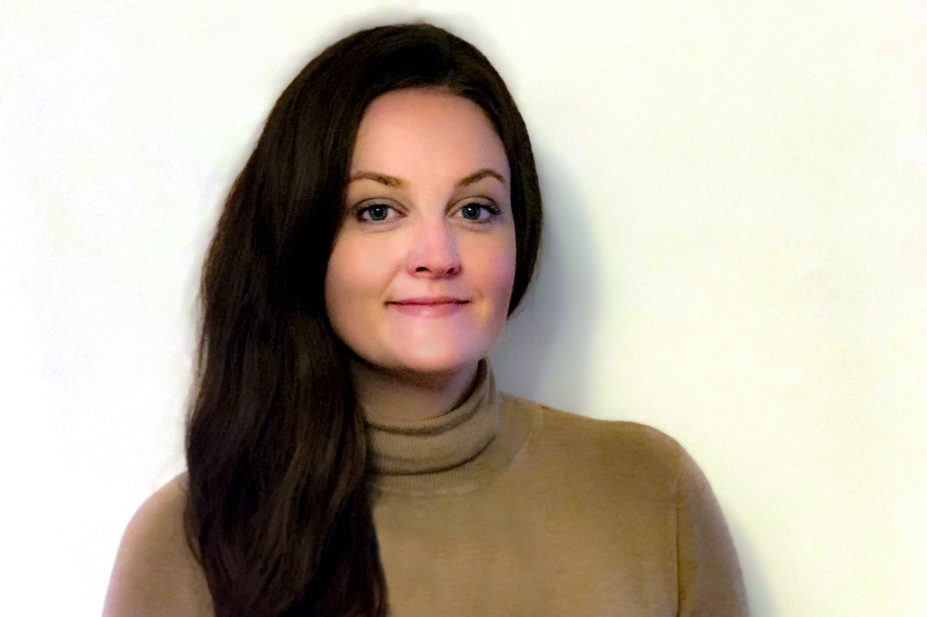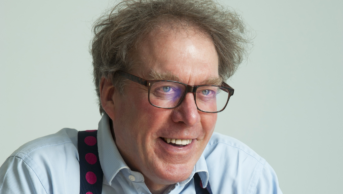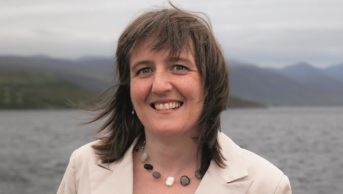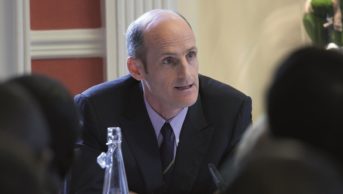
Regan McCahill
Pharmacy education was rarely out of the news in 2019, with headlines featuring plans to introduce a five-year degree and degree apprenticeships, as well as the announcement (and postponement) of cuts to NHS preregistration training.
However, during these debates around these topics, the voice of students is often lost amid the booming voices of the profession’s elders. Regan McCahill, who became president of the British Pharmaceutical Students’ Association (BPSA) in July 2019, is trying to change that.
The Pharmaceutical Journal spoke with McCahill shortly after the BPSA published a raft of new policy statements, including one that called for MPharm lecturers to improve their teaching skills and another which stated that all pharmacists in the UK should “offer emergency hormonal contraception, regardless of their personal, ethical or religious beliefs”.
Currently a preregistration trainee, McCahill is keen to put the wellbeing of pharmacy students at the top of her priorities and promises that the BPSA is looking into the achievement gap for black students in the General Pharmaceutical Council’s preregistration assessment, which widened significantly in 2019.
What prompted you to become president of the British Pharmaceutical Students’ Association?
It was a tough decision to apply to be president. It is a massive responsibility and I wanted to be able to do it well. I’ve gotten so much from the organisation. I have made all of my best friends through it and I learnt so much outside of my university degree about the world of pharmacy — wider pharmacy news and all of the different associations — that my university counterparts didn’t really know anything about: all they saw was the MPharm. I wanted to give that back to the next generation of students. Ultimately, this is why I made the decision to do it.
Which of the British Pharmaceutical Students’ Association’s latest policies will you prioritise?
That the MPharm curriculum should teach students how to recognise and respond to mental health conditions. We are planning on putting together a briefing on why we think this would be useful, and disseminating that to the Pharmacy Schools’ Council and the Royal Pharmaceutical Society (RPS) Assembly, asking them to support it.
Also, that the BPSA executive should work with the Department of Health and Social Care, the RPS, and other relevant organisations to raise awareness of risks associated with failing to adhere to the childhood vaccination schedule. Again, we’ll be writing to the RPS asking if it will support it, and we’ll be doing a big social media campaign to raise awareness of the risks.
The association believes that supporting the mental health of preregistration trainees and pharmacy students is of the utmost importance
We also believe that feminine sanitary products should be made more accessible to all who need them. We’ve been talking to RPS Scotland about this, as there has been a lot of activity around this in Scotland already. Quite a few universities now offer free sanitary products, and it’s about making sure that that’s done across the board. We will be getting in touch with our sponsors, like Boots, to discuss ways to offer free sanitary products to those in need, such as homeless people and at-risk groups, but we’re still thinking about the particulars of that one.
We’re going to be preparing something on the concerns of students around Brexit, too, and if there’s anything that the RPS could be doing to support students around that.
Finally, the BPSA believes that supporting the mental health of preregistration trainees and pharmacy students is of the utmost importance. We’re going to be doing a campaign to highlight mental health and wellbeing in students. We work closely with Pharmacist Support, which also supports students and preregistration pharmacists, and we’re thinking of drafting some guidance for students on where to go for help.
Among other motions, you have accepted as policy that that pharmacy students should be educated on, and advocate for, the United Nations Sustainable Development Goals
That has been a big one for us. At every event in 2019, we have thought about how we can fit in with sustainable development goals. At our conference we scrapped plastic water bottles and had refillables. Little things like that add up — especially when you think that it could have involved 150 delegates getting a water bottle each day for seven days. That’s a lot of plastic. We also try to be as paperless as possible: we have paperless ticketing for events.
What is the British Pharmaceutical Students’ Association’s view on pharmacy degree apprenticeships?
We attended the stakeholder meetings. The plan now is to open a consultation to our members to find out what they think. As of yet, we’ve been a bit hesitant to do that as there’s a lack of information, and so the responses that we get wouldn’t necessarily be informed enough. If we have a vote on the matter and put that into policy, it will be policy for three years, so we need to be really careful about when we ask members what they think.
There’s just not enough information at the moment. There are parts of it that sound really beneficial, and then there are parts that don’t sound so great. I think we need to wait and see.
Which parts may be beneficial and which less so?
At the stakeholder meeting, the employer group was saying that the plan is to make the MPharm more accessible to people that don’t come from the traditional GCSE/A-Level/top-marks background. I personally resonate with that. They were talking about enabling technicians and parents — people that might not have been able to go back to university, but who are perfectly capable of doing a degree — which sounds great. Why wouldn’t we want to encourage that? We’re in a situation now where we’re asking pharmacists to do more and more, and we need more pharmacists to do that.
My concern was that the MPharm requirements would still be exactly the same as the existing degree, and then you would have to work on top of that. People do work alongside the MPharm already, but they can take time off at summer and other holiday periods. Regarding the logistics of it, I’m not sure how a student would cope with the pressure of that. And we’ve got to be thinking about mental health and wellbeing.
What are you doing about the achievement gap for black students in the preregistration exam?
Several members of our team are looking at that this year. We’ve got a couple of meetings coming up with the GPhC and our members are doing their own work, looking into what the figures are and what the causes could be. They’re going to be speaking to black preregistration members and students as well. We find that our members will open up to us a bit more than they will to, say, the GPhC or other bodies because they relate to us.
How about the achievement gap for black undergraduate pharmacy students?
Yes, a similar thing. The RPS is doing an inclusion and diversity workshop that we’re involved with. We’ll go to events like that and see what’s going on at that level, and then bring it back to our members and see what we can do for them. It’s really in the infancy stage at the moment.
Is there anything else you’d like to say about the British Pharmaceutical Students’ Association and its work?
The BPSA is in a really strong position right now – moreso than it has been in previous years. People are really starting to see the value in the student voice and that is important. Our members — all 15,000 of them — are the future of pharmacy and unless you engage with them now, at the student level, you’re going to lose them when they’re qualified.
How have you enacted the policy that pharmacy students should be educated on, and advocate for, the United Nations Sustainable Development Goals?
That has been a big one for us. At every event this year, we are thinking about how we can fit in with sustainable development goals. At our conference this year we scrapped plastic water bottles, and had refillables. Little things like that add up, especially when you think that it could have involved 150 delegates getting a water bottle each day for seven days. That’s a lot of plastic. We also try to be as paperless as possible: we have paperless ticketing for events. Our public relations officer, Rhys, this is his baby: he feels very strongly about sustainable development goals.
You studied for your pharmacy degree while raising two young children — what was that like?
I first went to university in 2009, at the age of 18 years, and studied psychology for a month. I didn’t like it, so I left. It took me another five years, after I had my first child, to realise “I need to do something with my life”, so I went back to university and started the MPharm at the age of 25 years, after spending two years at foundation level.
I completed my foundation and first two years at Durham University, and then the course got moved to Newcastle University — so I did my final two years at Newcastle, but I still graduated from Durham. It’s a bit complicated!
During my studies I met my husband, who is also a pharmacist, and we had our second child when I was in my third year.
I look back now and I’m not quite sure how I did it. I had good support: my mum is amazing and my husband is really supportive. I got really good at prioritising tasks, organising time and writing a lot of to-do lists. I didn’t have much spare time to do other things, but that was a sacrifice I was willing to make to invest in my future.


